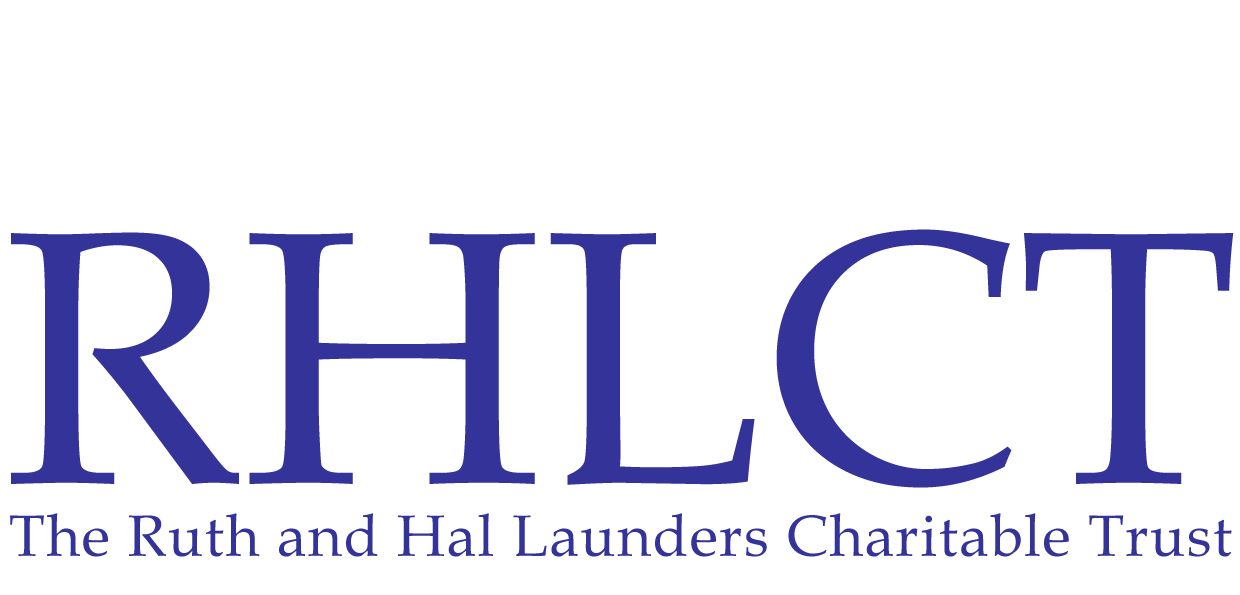Duties and Responsibilities of a Trustee
Overview
The RHLCT Trustee shoulders responsibility for the custodianship of the Trust assets and their use and application for the exclusive benefit of public charities or other eligible charitable beneficiaries. The Trustee acts in furtherance of the Joseph H. Launders Trust Declaration. The Trustee must act in accord with applicable federal and Virginia laws. Each individual who agrees to serves as a co-trustee is obliged to act, to the best of his or her judgment and ability, in a manner to cause the
RHLCT Trustee to adhere to this responsibility.

Each co-trustee assumes the duties of Care, Loyalty, and Obedience. These are interconnected and codified in the Uniform Trust Code as enacted in Virginia, VA Code §§ 64.2-763 and 764 (see below). Broadly stated, the Duty of Care calls on the Trustee to act prudently in superintending and utilizing the Trust assets. The Duty of Loyalty requires a co-trustee to avoid self-interest by acting solely in the global interest of the Trust. The Duty of Obedience implores adherence to the governing documents of the Trust together with applicable laws.
Because RHLCT is classified as a private foundation under the United States Internal Revenue Code, federal law imposes more restrictions. Among the most important is the necessity of avoiding conduct defined as self-dealing. Transactions between the Trustee and Trust which might otherwise be allowed under state law are absolutely precluded. An example is the sale or lease of property between a trustee and the Trust. An exception to the law against self-dealing, however, allows payment of reasonable compensation to the Trustee for services rendered, and reimbursement of expenses reasonably and necessarily incurred, if otherwise authorized by the Trust Declaration.
Federal tax law includes additional proscriptions on private foundations the violation of which can result in the levy of an excise tax or loss of the Trust’s tax-exempt status. A partial list is a requirement to distribute a certain percentage of Trust assets for qualifying charitable purposes within a prescribed period of time, to avoid excessive ownership in a trade of business, and to refrain from risky and speculative investments. A detailed discussion of these regulations is beyond the scope of this document, but can be found in other readily available publications.

Specific Board Responsibilities
The following are among the most important responsibilities of the Board of Trustees. Each co-trustee should discharge these in the context of his or her role as one member of the Board.
- Retain and periodically evaluate the performance of the Trust Investment Advisor
- Monitor and amend as appropriate the Trust’s Investment Policy Statement and verify compliance with its provisions
- Retain, and evaluate the performance of, the Trust’s Executive Director
- Review and adopt an annual budget
- Elect officers
- Establish policies respecting grant-making procedures
- Evaluate and approve grants
- Formulate and adopt other policies or policy initiatives as needed, e.g. employee benefits, document retention, whistleblower protection, audited financial statements.

Expectations of an Exemplary Co-Trustee
- Prepares for, attends, and participates at all Board meetings
- Explores avenues for reaching Board consensus
- Volunteers and serves on committees
- Regularly reviews Trust financial reports and accounts
- Regularly reviews staff reports and postings
- Completes all assigned tasks in a timely manner
- Visits RHLCT Web site on a regular basis and offers to post content
when available - Listens to and considers the opinions of other co-trustees
- Respects the prerogative of the Board Chair to act as the presiding
officer at all Board meetings - Conducts site visits to major grantees
- Attends conferences and seminars
- Stays abreast of current trends and topics in philanthropy
Approved and adopted by resolution of the Board of Trustees of The
Ruth and Hal Launders Charitable Trust on 25 February 2018
Code of Virginia
Title 64.2. Wills, Trusts, and Fiduciaries
Chapter 7. Uniform Trust Code
§ 64.2-763. Duty to administer trust and invest
Upon acceptance of a trusteeship, the trustee shall administer the trust and invest trust assets in good faith, in accordance with its terms and purposes and the interests of the beneficiaries, and in accordance with this chapter. In administering, managing and investing trust assets, the trustee shall comply with the provisions of the Uniform Prudent Investor Act (§ 64.2-780 et seq.) and the Uniform Principal and Income Act (§ 64.2-1000 et seq.).
2005, c. 935, § 55-548.01; 2012, c. 614.
The chapters of the acts of assembly referenced in the historical citation at the end of this section may not constitute a comprehensive list of such chapters and may exclude chapters whose provisions have expired.
Code of Virginia
Title 64.2. Wills, Trusts, and Fiduciaries
Chapter 7. Uniform Trust Code
§ 64.2-764. Duty of loyalty
A. A trustee shall administer the trust solely in the interests of the beneficiaries.
B. Subject to the rights of persons dealing with or assisting the trustee as provided in § 64.2-803, a sale, encumbrance, or other transaction involving the investment or management of trust property entered into by the trustee for the trustee’s own personal account or that is otherwise affected by a conflict between the trustee’s fiduciary and personal interests is voidable by a beneficiary affected by the transaction unless:
1. The transaction was authorized by the terms of the trust;
2. The transaction was approved by the court;
3. The beneficiary did not commence a judicial proceeding within the time allowed by § 64.2-796;
4. The beneficiary consented to the trustee’s conduct, ratified the transaction, or released the
trustee in compliance with § 64.2-800;or
5. The transaction involves a contract entered into or claim acquired by the trustee before the
person became or contemplated becoming trustee.
C. A sale, encumbrance, or other transaction involving the investment or management of trust
property is presumed to be affected by a conflict between personal and fiduciary interests if it is entered into by the trustee with:
1. The trustee’s spouse;
2. The trustee’s descendants, siblings, parents, or their spouses;
3. An agent or attorney of the trustee; or
4. A corporation or other person or enterprise in which the trustee, or a person that owns a
significant interest in the trustee, has an interest that might affect the trustee’s best judgment.
D. A transaction between a trustee and a beneficiary that does not concern trust property but
that occurs during the existence of the trust or while the trustee retains significant influence
over the beneficiary and from which the trustee obtains an advantage beyond the normal
commercial advantage from such transaction is voidable by the beneficiary unless the trustee
establishes that the transaction was fair to the beneficiary.
E. A transaction not concerning trust property in which the trustee engages in the trustee’s
individual capacity involves a conflict between personal and fiduciary interests if the transaction concerns an opportunity properly belonging to the trust.
F. An investment by a trustee in securities of an investment company, investment trust, mutual fund, or other investment or financial product to which the trustee, or an affiliate of the trustee, sponsors, sells, or provides services in a capacity other than as trustee is not presumed to be affected by a conflict between personal and fiduciary interests if the investment otherwise complies with the Uniform Prudent Investor Act (§ 64.2-780 et seq.) and § 64.2-1506. The trustee may be compensated by the investment company, investment trust, mutual fund, or other investment or financial product, or by the affiliated entity sponsoring, selling, or providing such service, and such compensation may be in addition to the compensation the trustee is receiving as a trustee if the trustee notifies the persons entitled to receive a copy of the trustee’s annual report under § 64.2-775 of the rate and method by which that compensation was determined and of any subsequent changes to such rate or method of compensation.
G. In voting shares of stock or in exercising powers of control over similar interests in other
forms of enterprise, the trustee shall act in the best interests of the beneficiaries. If the trust is
the sole owner of a corporation or other form of enterprise, the trustee shall elect or appoint
directors or other managers who will manage the corporation or enterprise in the best interests of the beneficiaries.
H. This section does not preclude the following transactions, if fair to the beneficiaries:
1. An agreement between a trustee and a beneficiary relating to the appointment or
compensation of the trustee;
2. Payment of reasonable compensation to the trustee;
3. A transaction between a trust and another trust, decedent’s estate, or conservatorship of which the trustee is a fiduciary or in which a beneficiary has an interest;
4. A deposit of trust money in a regulated financial service institution operated by the trustee; or
5. An advance by the trustee of money for the protection of the trust.
I. The court may appoint a special fiduciary to make a decision with respect to any proposed
transaction that might violate this section if entered into by the trustee.
2005, c. 935, § 55-548.02; 2012, c. 614.
The chapters of the acts of assembly referenced in the historical citation at the end of this section may not constitute a comprehensive list of such chapters and may exclude chapters whose provisions have expired.
